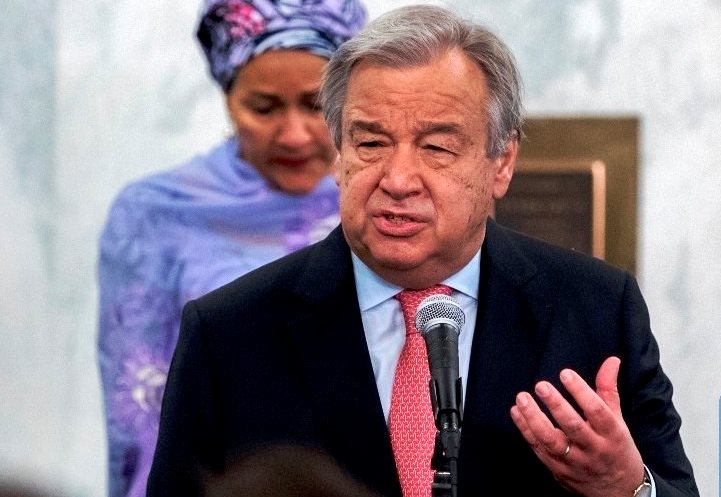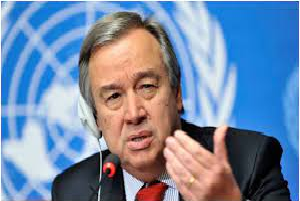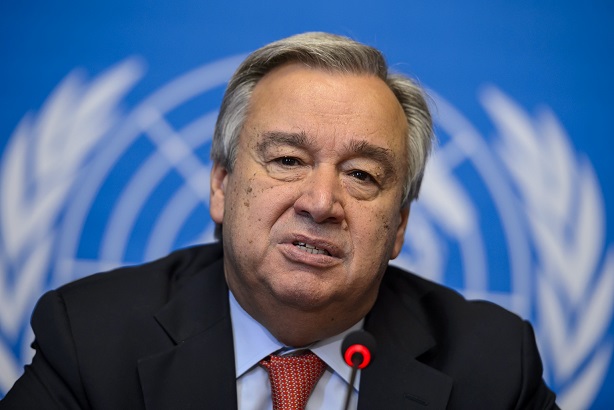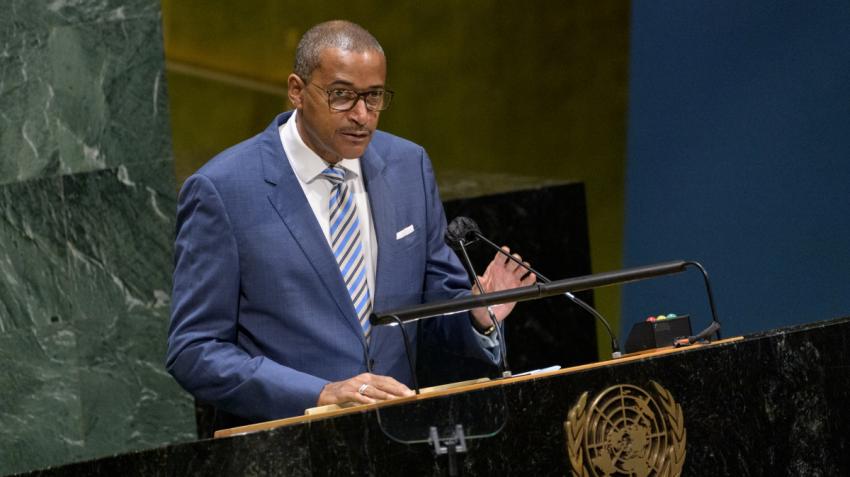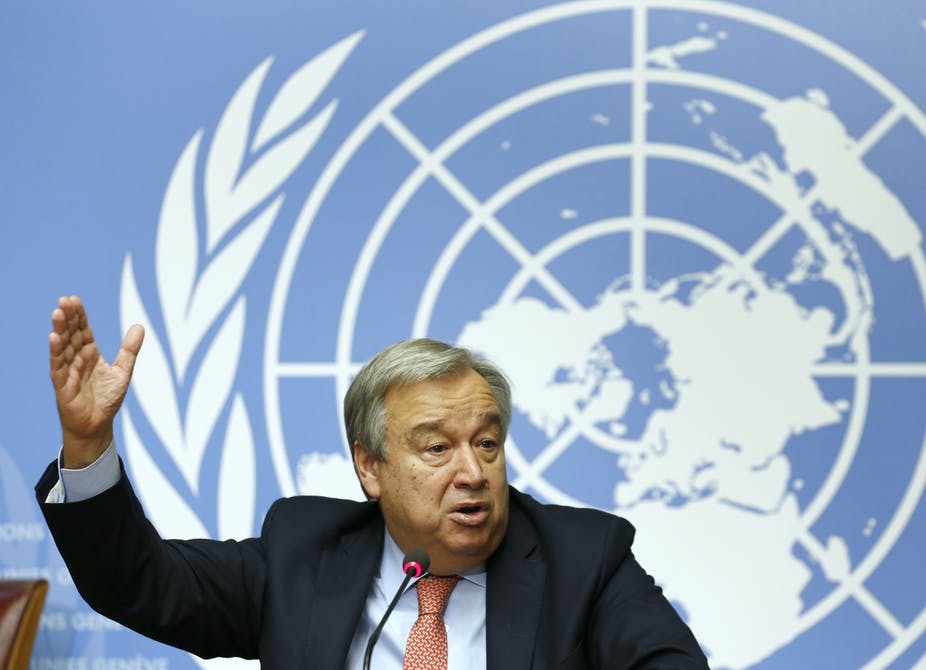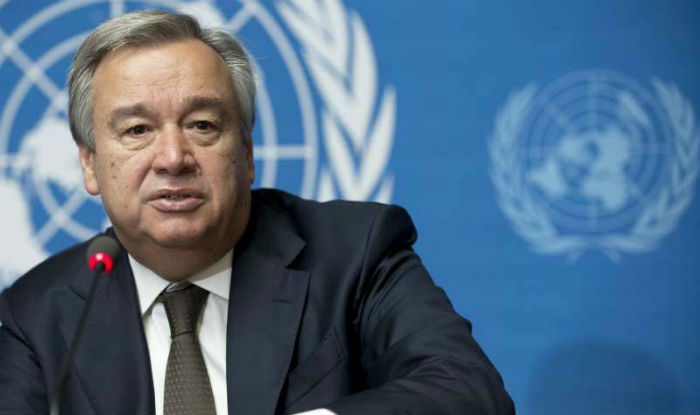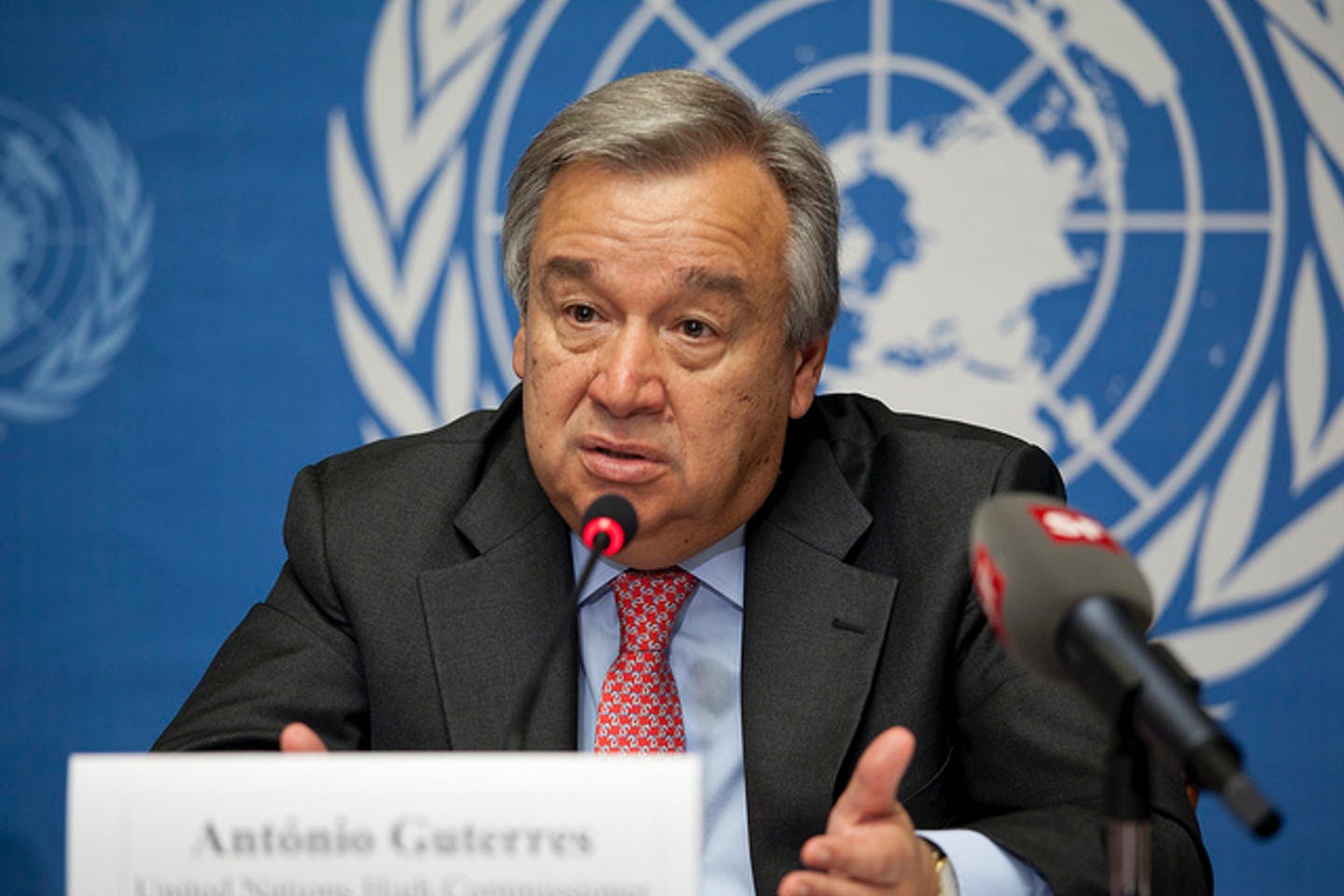United Nations Secretary-General, António Guterres, has said Russia’s invasion of Ukraine compels member states of the United Nations to unite in “cooperation and solidarity” to support all those impacted “and to overcome this violation of international law”.
The UN chief, while addressing the General Assembly in New York on Thursday, on enhancing international cooperation, thanked all member states for their “constructive and active engagement” together with all other stakeholders who have contributed to the themed discussions.
Guterres noted that the meeting was taking place in the shadow of Russia’s invasion of Ukraine.
He said: “Peace is the most important global public good and the United Nations was created to deliver it. War brings death, human suffering and unimaginable destruction, at a time when we cannot afford to add to the major global challenges we face.
“This conflict also calls on us to come together in cooperation and solidarity to support everyone affected, and to overcome this violation of international law.”
Guterres explained that if we are to bequeath “a world free from want and fear, and full of opportunities to fulfil their potential, we must urgently focus on building and strengthening the foundations of the multilateral system.”
According to him, “the Common Agenda had been a contribution towards finding solutions, but it was up to Member States now, to take its proposals forward.
“But make no mistake: solutions are essential and urgent. We must take the difficult decisions that will enable us to move forward.”
“We have been brought back to the foundational promise of the United Nations Charter, to save succeeding generations from the scourge of war. Many people around the world are asking how this could happen in the 21st century.
“How are we still staring into the nuclear abyss, as millions of people flee across borders and the most fundamental tenets of international law are trampled?”
He posited that global governance systems needed to be reviewed urgently, with the conflict raising “serious global implications on several fronts.”
On the implications of Ukraine invasion, the United Nations Secretary-General asserted that first, it will stretch humanitarian funding even thinner, increasing the suffering of many of the most vulnerable.
“Second, it could indirectly increase global hunger. Ukraine is one of the world’s biggest sources of grain, the Russian Federation is second, and the conflict could cause prices to spike.
“Third, this conflict is deeply linked with the climate crisis, demonstrating how our continued reliance on fossil fuels puts the global economy and energy security at the mercy of geopolitical shocks.”
Guterres opined that rising energy and food prices would hit the developing world hardest, as pandemic aftershocks and rising inflation, together with interest rates, were already hampering development.
“Improving international cooperation must look at all non-traditional threats, together with cyber warfare, disinformation campaigns, the threats from weapons of mass destruction, and more”, added the Secretary-General.
He stated that the Common Agenda report was “a wake-up call about the risks we face and the dangerous fiction that the status quo is a viable option. But you don’t need to read my report to wake up. You just need to look around.
In his words: “The climate crisis has passed the point of no return, even though we had plenty of warning and could have acted earlier. Much of the impact of the COVID-19 pandemic could have been prevented or mitigated. Instead, millions of people have died, hunger and poverty are rising, and the economic impact of the pandemic is still playing out.
He said the Summit “would be an opportunity for leaders to commit to move away from the dangerous course we are on, through multilateral cooperation, based on the values enshrined in the United Nations Charter.
“The outcome of the summit could be a Pact for the Future, turbocharging the 2030 Agenda, the Paris Agreement and the Addis Ababa Action Agenda.
Guterres told delegates that a multi-faceted war was now “raging in the heart of Europe, in violation of the United Nations Charter.
“We need a serious effort to improve global governance, manage risks and safeguard the global commons and global public goods.
“This is not only about the United Nations, or any other institution. It is about working together to solve our biggest problems, through existing structures if they are fit for purpose, and new or reinvigorated frameworks where needed.”
“We need a serious effort to improve global governance, manage risks and safeguard the global commons and global public goods – UN chief said.
Guterres said it was time to seek concrete recommendations to make global governance better, and announced a new High-Level Advisory Board on Global Public Goods, to be led by former President of Liberia Ellen Johnson Sirleaf, and former Prime Minister of Sweden, Stefan Löfven.
Without duplicating other efforts, and building on Our Common Agenda, as well as on the consultations undertaken during the UN75 process and the preparation of the report – and the consultations led by the President of the General Assembly – he said the Board would “consider governance gaps, emerging priorities and levels of urgency” leading towards the proposed intergovernmental Summit of the Future, in September 2023.
‘Pact for the Future’
While it will be for Member States to decide what is included in such a pact, Guterres said, the Common Agenda report proposes several elements:
• First, a new Agenda for Peace, that would unite us around a common vision of peace and security in the face of new threats and vulnerabilities.
• Second, a Global Digital Compact aimed at ensuring digital technology is a force for human wellbeing, solidarity and progress.
• Third, key principles for the peaceful and sustainable use of Outer Space.
• Fourth, the protocols around an Emergency Platform, which would enable us to more effectively manage global risks.
• And fifth, a Declaration outlining our promise to take account of the interests and needs of future generations in the decisions we take today, and mechanisms to do so.
